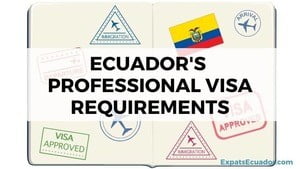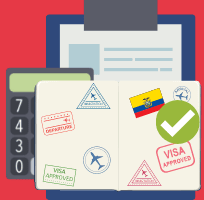We're getting to your messages. Thanks for your patience🙏
Now that many countries are considering offering 'digital nomad visas' or 'remote work visas', it's time to ask ourselves whether any of these are actually worthwhile for digital nomads.
It's clear that many countries that started offering digital nomad visas in 2020 have done so as a way to bolster their local economies on the back of the devastating impact of COVID 19. Tourism around the world has decreased by 70% in 2020, so trying to open up non-traditional tourism markets makes sense. At least on the surface.
However, this approach can seem a little short-sighted when you dig into the actual requirements for each country. It then becomes obvious that these measures are only designed to increase the tourism sector of the economy, with few countries seemingly willing to embrace digital nomadism and the benefits of growing their digital ecosystem.
There are some notable exceptions such as Estonia that have been developing their digitally focused visas for several years.
These countries offer visas specifically aimed at, or are otherwise potentially suitable for, digital nomads, remote workers and freelancers. I've also included the main requirements - but obviously do your own due diligence before applying for any.
Data taken mostly from Expert Vagabond
As you can see, the income requirements for many of these visas are quite steep, with many countries deciding to only open their doors to individuals earning $5K/month consistently. This pushes these types of visas out of reach for many digital nomads, making them more appropriate only for remote workers or some freelancers.
To illustrate, let's focus on one of the largest digital nomad vocations, online English teachers. Do you think many of these digital nomads are earning $5K/month? I know many that consistently earn $1.5K - $3K, but $5K/month is out of reach for most.
A quick calculation means that at $20/hour, they'd need to teach 250 hours each month to hit $5K. This would mean 8.2 hours every day, including weekends. This is a lot of online teaching. It's just not doable for most.
The table above includes countries that have either:
Ecuador is a great example of a country that doesn't have a specific digital nomad visa, and perhaps doesn't need to.
Why? Because many digital nomads can already legally work using one of Ecuador's several types of temporary resident visas. The most popular amongst digital nomads is the 'Professional Visa', which has the lowest monthly income requirement of any country at $400. You'll also need a bachelor's degree (or higher), background checks and health insurance.
Sure, the process to apply for the visa can be a little tedious and time consuming, but even if you opt to use a visa facilitator, the entire visa cost is still likely to be less than $2K. And this is for a 2-year visa.
Yes, I might be a little biased because I live in Ecuador. But, my decision to live in Ecuador came after years of digital nomading. The ease of which to obtain residency was an important factor in my decision.
Ecuador's Minister of Tourism, Neils Olsen, started discussions with the Ministry of Foreign Affairs to create a 'Nomad Visa'. The main purpose is to bolster the economy with the injection of foreign cash & create new jobs.
There are no details at this stage, but we'll be watching closely to see what impact this has on the minimum income requirements for the new nomad visa and the current visas.
There are rare circumstances where a country actually fits into both of the above categories. The best example of this is Costa Rica that, at the time of writing, is currently pushing a proposal to create a new type of visa suitable for digital nomads that have employment outside of Costa Rica.
But, they already have a temporary residency visa, the Rentista, that allows foreigners to stay for up to two years. The main difference is that they require a guaranteed monthly income of $2,500 such as property investments, annuities etc, or depositing $60K into a Costa Rican bank. Whilst the visa allows you to work for yourself, you can't work for another company.
What is interesting about their current digital nomad visa proposal is they've basically doubled the minimum income requirement; from $2,500 to $5,000. Given the monthly minimum wage in Costa Rica is less than $500, the new visa is basically asking digital nomads to earn 10x what locals do.
Is this healthy for the economy long-term? I'm not so sure. But, I do know that if their digital nomad visa is successful, you can expect the income inequality gap to increase as more wealthy remote workers take up office on their shores.
Whilst it's great to see many countries starting to offer digital nomad visas, the income requirements make them less than welcoming for many. It's a move in the right direction for sure, but there is much more work to be done if they actually want to attract digital nomads in volume.
And remember, you may be better served by applying for a visa in a country such as Ecuador that doesn't offer visas specific to digital nomads, but is still very digital nomad friendly.
What's your experience with digital nomad visas? I'd love to hear it in the comments below.
Feature image: Digital Douchebag




Amazing article. I concur that all of these countries are being digital nomad unfriendly because of their unreasonable income requirements. If you earn $60,000 a year, you are probably not a digital nomad and therefore don't need a digital nomad visa. I hope these unrealistic expectations will change soon.
Will 110 to 120k in mutual funds get me the Investor visa?
You're investing with an Ecuadorian entity? If so, then it's a possibility, but hard to say without knowing the institution & investment policy.
Im looking for the requirements for a volunteer visa. I can’t find this anywhere online.